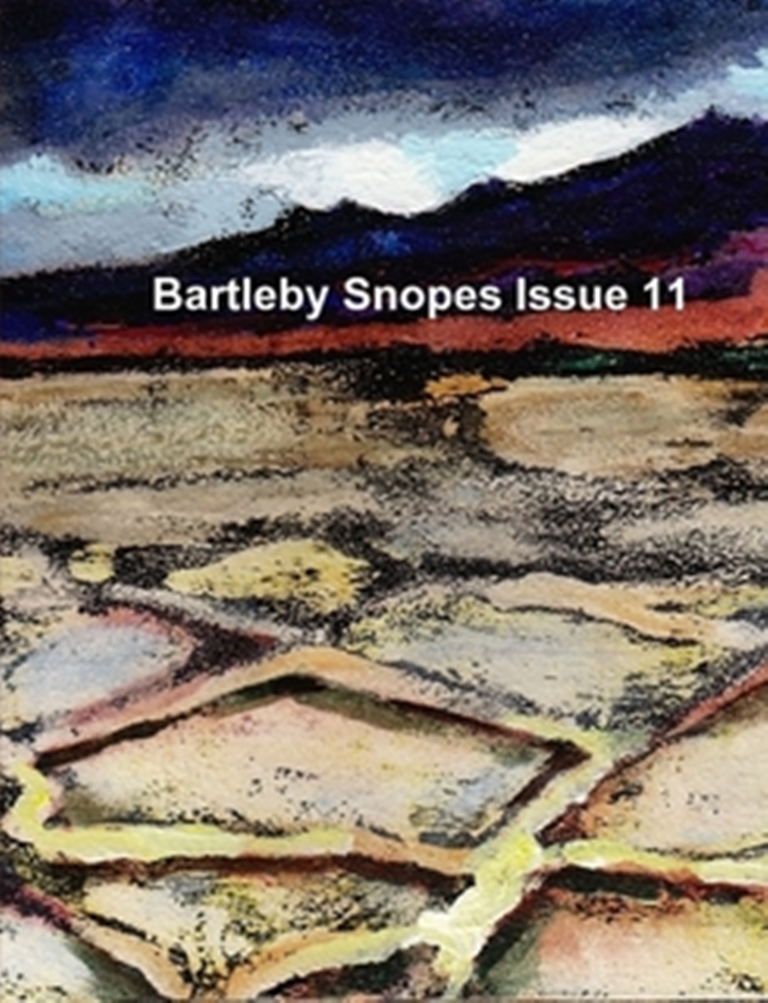The 9th Annual Bartleby Snopes Dialogue Only Contest will open on June 1st, 2018. Please read these tips before submitting your entries. The main contest guidelines are available here.

Every year, Bartleby Snopes Literary Magazine hosts a dialogue-only writing contest. Submissions must consist of nothing but dialogue. You can have as many characters as you want, but you can't have any tag lines or any narration. If it sounds easy, then you are probably doing it wrong.
During the five years we've hosted the contest, we have read hundreds of dialogue stories. Here are some things we have learned in the process. Even if you don't plan to submit to the contest, we think these tips will help you create stories with great dialogue.
Good Dialogue Should Feel Real
Many authors try to force the story to move through the dialogue. They will attempt to "cheat" by making the characters say unnatural things in order to paint the scene better. A character might say "I am going to pick up this gun right here off this table that is right next to me." In most stories, the character would probably just pick up the gun. When you are telling a story through dialogue, you must remain true to your characters. Don't force them to say things they wouldn't just because it will move your plot along or paint a better picture in the reader's head (it probably won't). Before you start penning your dialogue-only story, take some time to listen to an actual conversation. After you've written your story, read it out loud and ask yourself if it actually sounds like people talking. If you can't imagine someone saying it, then the story probably isn't going to work.
Don't Make the Dialogue Too "Real"
One tendency people have when writing dialogue is to try to write everything exactly how it "sounds." This often results in dialogue that sounds too slangy or forced. While you may know someone who says "like" after every other word or drops twelve "f-bombs" per sentence, this doesn't translate well on the page. Attempting to have your characters speak in a dialect also often fails. Yes, there are some writers who have created masterful dialogue using dialect (Zora Neale Hurston and Mark Twain are two of the best), but the majority of writers can't pull it off. More often than not, dialect doesn't read anything like how people actually sound when they talk. And if you haven't really immersed yourself in a dialect, then you typically misrepresent it anyway.
Choose an Innovative Storyline
It shouldn't come as a surprise that the winning stories have been unique. What are the first things that come to mind when you think of a dialogue-only story? Chances are, if you think it right away, then dozens of other writers are sending the same stories. Here are some situations that we would recommend staying away from: psychiatric evaluations, interrogations, and barroom chatter. These three topics make up the majority of the submissions we see, and they almost never yield a good story. That doesn't mean they can't work. These particular topics just tend to take extra skill in order to succeed.
Don't Try to Overdo the Action
One of the main reasons that the types of stories we mentioned above don't work is because nothing tends to happen. The other big mistake that submitters make is trying to make too much happen. If you are confined to using nothing but dialogue, you might not be able to create a great action scene. We've seen dialogue-only stories with dozens of characters involved in shootings. This often leads to the "You shot me right in the face and it really hurts!" type of dialogue. As you can imagine, these stories never end well. Yes, Shakespeare's characters often died with "I am slain," but it goes without saying that you aren't Shakespeare.
There are many other tips we could offer when it comes to writing dialogue, but we think it's best to leave it up to the masters. Here are a few of our dialogue contest winners from years past. Read them carefully before you submit your own contest entry. And if you've never read Hemingway's "Hills Like White Elephants," then you have no business writing dialogue into your story.
Haikuzilla by Caleb Echterling (8th Annual Dialogue Contest Winner)
Boogeyman by Rebecca McDowell (7th Annual Dialogue Contest Winner)
Slurpie Safari by Sorrel Westbrook-Wilson (6th Annual Dialogue Contest Winner)
Night Orderly by Ronald Friedman (5th Annual Dialogue Contest Winner)
Open Me by Lee Stoops (4th Annual Dialogue Contest Winner)
Poem About Writing a Poem by Mark Jordan Manner (3rd Annual Dialogue Contest Winner)
Why Won't You by Annam Manthiram (2nd Annual Dialogue Contest Winner)
Cooking Chinese by David Williams (1st Annual Dialogue Contest Winner)
Enter our 9th Annual Dialogue Only Contest Today (Submissions open on June 1st, 2018):

